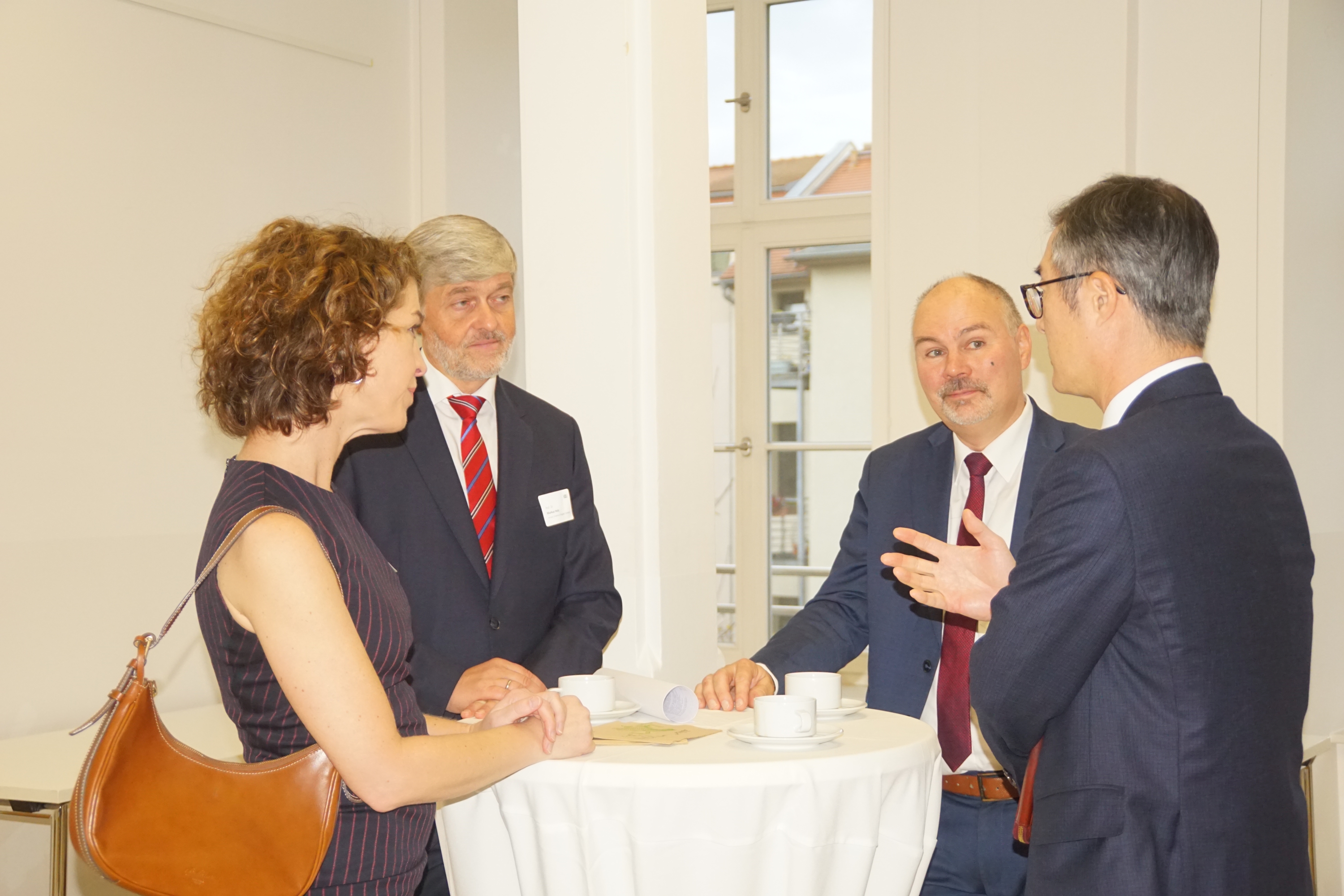The fifth edition of the Germany-Korea Hydrogen Conference brought an important exchange and valuable insights into the current and future requirements of the hydrogen economy. During the two-day conference in Halle (Saale), around 150 participants from Germany and South Korea discussed topics such as optimization options for hydrogen production, transport and use, safety aspects as well as political and legal framework conditions.

Leading experts from the hydrogen industry in both countries welcomed the guests at the start of the conference at the German National Academy of Sciences Leopoldina: Prof. Dr. Jörg Bagdahn (President of Anhalt University of Applied Sciences), Prof. Dr. Erica Lilleodden (Director of the Fraunhofer Institute for Microstructure of Materials and Systems IMWS), Prof. Dr. Chinho Park (Acting President of KENTECH University), Prof. Dr. Norbert Huber (Vice President of the Federal Institute for Materials Testing BAM) and Dr. Jae-Hong Kim (Chairman of H2KOREA).
The Korean Ambassador H.E. Sang Beom Lim and Thomas Wünsch, State Secretary in the Ministry for Research, Energy, Climate Protection and the Environment of the State of Saxony-Anhalt, gave welcoming addresses from the political side. A highlight was the opening speech by Till Mansmann from the Federal Ministry of Education and Research BMBF.
Innovative approaches to hydrogen production, transportation and possible uses were presented in the various sessions. The debates enabled the exchange of ideas and demonstrated the joint determination of both countries to work together in this key area. The intensive exchange was also a good basis for discussing joint project ideas and future initiatives.
“After being able to attend the Germany-Korea Hydrogen Conference in Seoul in 2023, I was all the more pleased to be able to welcome our Korean partners to Halle as host this time. Once again, we have seen how trusting, targeted and research-oriented this cooperation is. For me, the fifth edition of our joint conference also underlined how well the expertise in Germany and South Korea complement each other and how similar the needs of industry are, for which we want to create solutions by pooling our know-how,” said Lilleodden at the end of the conference.
South Korea is one of the most important scientific partners for the Fraunhofer IMWS, particularly in the field of renewable energy research. The first cooperation agreement was concluded back in 2013, on which numerous joint projects with institutions such as the Korea Institute of Energy Technology (KENTECH), Korea Institute of Energy Research (KIER), Korea Institute of Energy Technology Evaluation and Planning (KETEP), Yeungnam University and Hanyang University were based. Since 2021, the cooperation has been running in the H2DeKo project, and since 2022 the Fraunhofer IMWS has been leading the Fraunhofer Innovation Platform - FIP-H2ENERGY@KENTECH on the German side.
(October 25, 2024)